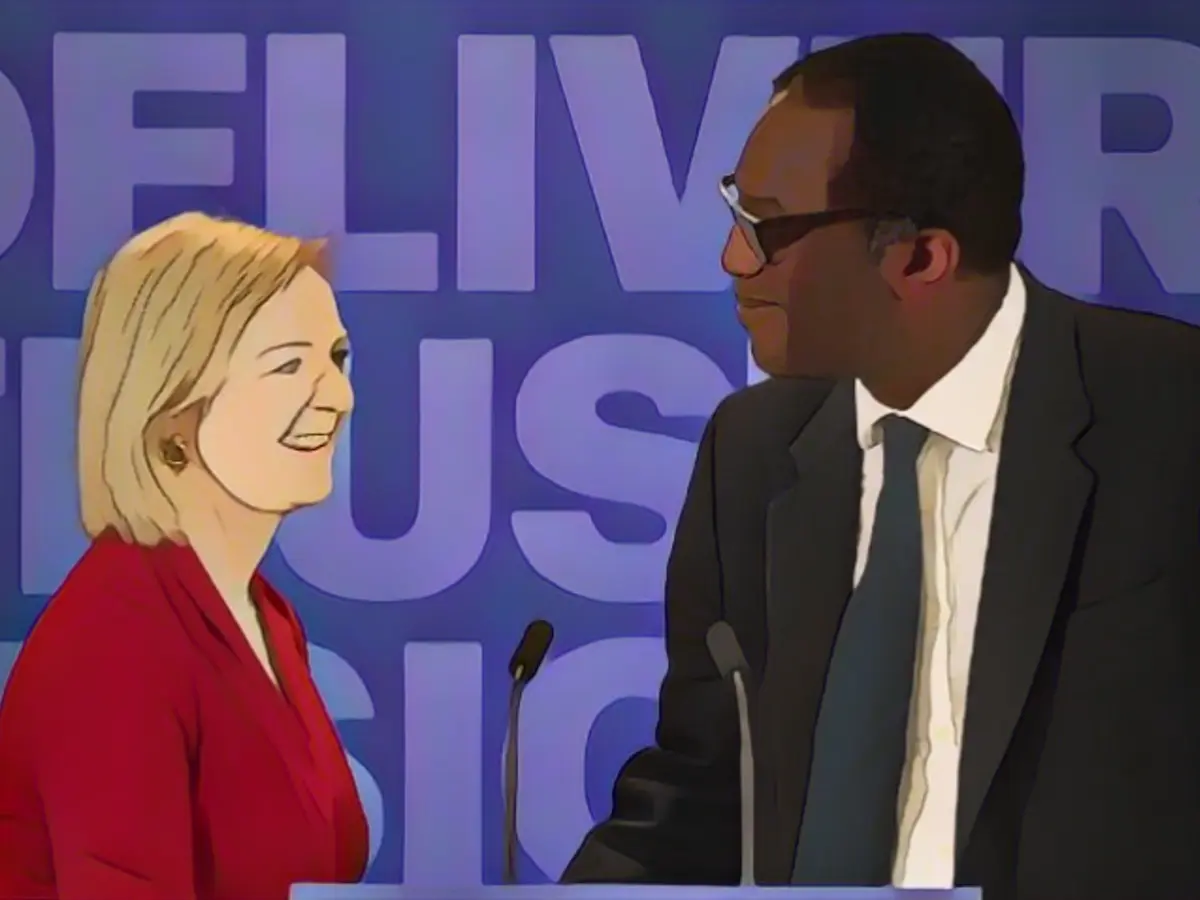The UK's original plan to decrease the top tax rate for high earners has faced criticism, leading Finance Minister Kwasi Kwarteng to acknowledge a shift in focus. The decision to pull back from these tax cuts was made just 24 hours after Prime Minister Liz Truss acknowledged errors in drafting the proposed budget.
The tax cuts were a component of Truss's extensive plans, which also included slashing taxes generally and implementing a larger policy package. However, the controversial aspect of these proposals was the reduction of the top income tax rate from 45% to 40%. The backlash was immediate, with critics arguing that these tax reductions for the wealthy would worsen income inequality and intensify inflationary pressures on the UK economy.
The government's concession comes as the UK grapples with an energy crisis and the aftermath of widespread criticism. The proposed cuts in taxes for high earners were a politically contentious part of the overall plan. The International Monetary Fund (IMF) even entered the fray, criticizing the UK government's proposal and warning that it would exacerbate inequality and boost inflation.
Former colleagues of Truss, including Michael Gove and Grant Shapps, voiced concerns about plans for wealthy individuals to receive promotional gifts in light of the visible rift within the Conservative Party. This uproar may have been a significant factor in the government's decision, as it faced the possibility of parliament blocking these measures.
The pound experienced a significant drop following the announcement of the tax cuts, and chaos ensued on the UK's government bond markets. This outcome necessitated a swift intervention from the Bank of England, which announced plans to purchase £65 billion worth of UK government bonds to restore some order.
However, the decision to retract the top tax rate cuts falls short of a significant reduction in the overall scope of the tax cut package. The estimated impact is around a 2-billion-pound reduction in the overall value of the package, with the government remaining obligated to reassure the markets about the financing of the remainder.
"The move is not so much about the amount of money saved, but about the ideological point it highlights: the financing of tax cuts," Chris Turner, head of UK markets at ING, mentioned in his analysis.
Standard & Poor's, a rating agency, went as far as downgrading its view of the UK's fiscal outlook from 'stable' to 'negative' following the planned tax cuts and the resulting economic uncertainty. This downgrade highlights the challenges that the UK faces, with many advanced economies experiencing recession as a consequence of the energy crisis and an increase in interest rates to combat inflation.
The failed "mini budget" sent the market into a frenzy, raising expectations for UK interest rates. This in turn led British mortgage lenders to increase interest rates on new loans and refinancing existing ones. The uncertainty then sparked rumors of a potential drop in property prices in the near future.
The Bank of England's intervention offered a momentary reprieve, buying time for the government to clarify its economic strategy to the market. However, the emergency bond-buying program will conclude on October 14, with the government due to publish its comprehensive budget on November 23.
Further shifts or adjustments in policy may yet emerge as the government must navigate the intricate landscape of balancing economic growth, fiscal responsibility, and financial market expectations.








